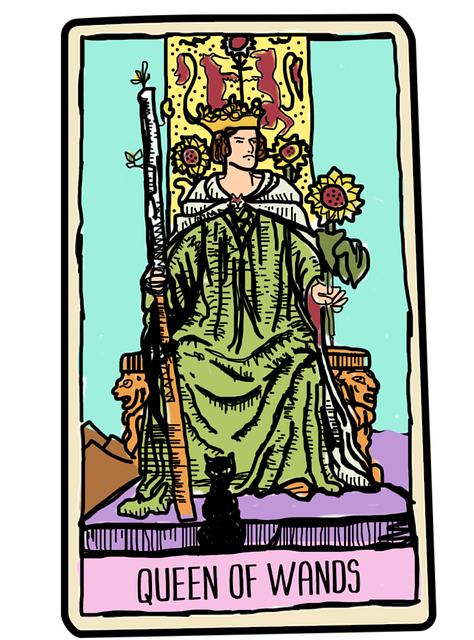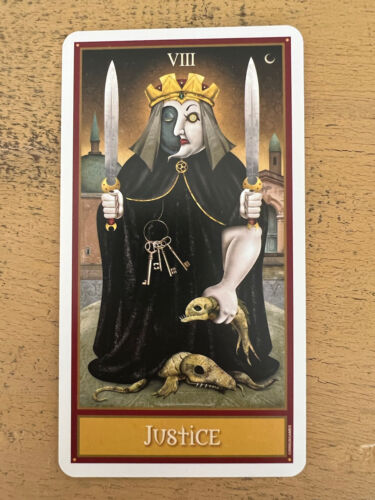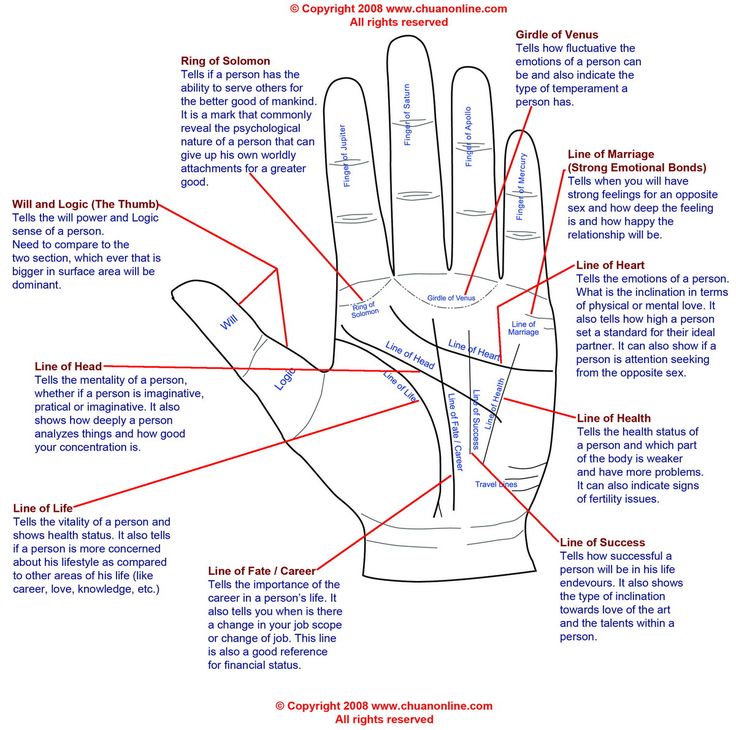
Jessica Dore, a Philadelphia-based tarot readers and yoga teacher, is the author. Neben Tarot, she also practices Ashtanga Yoga, teaches Tarot and conducts one-on-one tarot card sessions over video. Her Twitter account is a huge phenomenon. Her tweets often include a picture of a greeting card.
Jessica Dore is an expert tarot reader
Jessica Dore is a professional Tarot Reader who blends traditional philosophy and popular psychological modalities. In her book Tarot for Change (Tarot for Change), she examines the human condition, psychology and late capitalism. She also discusses the next steps in her practice. Dore's work can be found on her website as well as on Twitter.
She believes that tarot is able to help people see a better world, and to free them from rationalism. Her focus is on a world that doesn't have "black and/or white", and in which seemingly opposing views are actually the same. This ideal is very similar to the Indigenous worldviews that have strong connections to tarot.

She combines tarot readings with therapy
Jessica Dore (34), combines tarot readings and her work as a writer and social worker. Tarot can be used to help people self-reflect and identify stuck emotions. In addition, she adds a layer of therapy to her readings.
Dore was a publicist for a publishing company that specialized in health, psychology, spirituality, before she became a therapist. She was introduced by a coworker to tarot card readings and she started to study them. Rachel Pollack wrote a book about tarot that she recommended and she kept a journal of her experiences. She now conducts one-on-1 tarot card sessions by video.
She teaches ashtanga yoga
Jessica Dore started her yoga practice in 2006 and started teaching in 2010. Although she started out simply practicing the asanas for physical health, she soon became fascinated with the wisdom inherent in the yoga practice. She became fascinated by this ancient practice and wanted to know more. She visited India twice to study meditation with Professor Om Baweja, and then immersed herself in asana practice.
Dore is also a licensed social worker and a tarot card reader. She has used tarot cards to help people connect with their spirit and mind. She discusses the psychological as well mystical meaning of tarot and its use in her newsletter. She hopes that these insights will aid people through difficult transitions in their lives.

She practices tarot
Jessica Dore uses the tarot for her thoughts. She also uses the cards to practice self-care. She speaks about her daily routines of bread baking and tarot. This is a great way to let your imagination run wild and explore your emotions.
The tarot can be divided into major and minor arcana. It consists of cards that are related to both individual and interrelated items. Major cards, however, are used to ask spiritual questions. Tarot allows you to tap into the creative part of your being and helps you overcome your fears and limitations.
FAQ
How can I get started in my new hobby?
The first step toward starting any new hobby is to decide what kind of activity you'd like to pursue.
Once you have decided on your subject, passion is the key.
Understanding why you are interested in a hobby is important. It will give you some direction and purpose.
Once you've chosen the hobby you would like to pursue you can start planning.
Consider the equipment that you will need.
You should consider whether or not you will need to take classes or attend seminars.
Make sure that you have enough space in your home for your hobby.
It might also be worth considering joining a group or club. These groups usually offer support and advice.
Think about how much you'd need to spend on your hobby.
What is observation hobby?
Observation hobbies can be activities that you watch people do. These hobbies could include reading books, watching sports, or going on vacation. You could also observe other people.
Because they teach you how to think creatively, observation hobbies are great. You can draw on this knowledge later, when you work on projects for others.
You will discover that learning is easier when you are interested.
You might watch or read about football to learn more. Exhibitions are a great way to learn about photography.
You can play along with songs online or purchase a guitar if you love music.
If you love cooking, you can either cook your meals at home or order from a local restaurant.
If gardening is your passion, you can grow vegetables and flowers.
If dancing is something you enjoy, join a dance class.
If you like painting, you could paint pictures.
Writing poetry or stories is a passion if you are a writer.
Drawing pictures is a great hobby.
You could work as a caretaker or keeper at a zoo if you are passionate about animals.
If you like science, you could study biology, chemistry, physics or maths.
You can read books, listen to podcasts, or watch films if history interests you.
You could explore the world or travel to places you love if you are a lover of traveling.
What are some competitive hobbies?
You can compete in running, swimming or cycling as well golfing or tennis.
They are usually enjoyed by people who enjoy being active, but also allow for social interaction.
You will probably find people around you who have the same hobby as you, if you are into physical activity.
This could be as simple as joining a sports club where you play regularly together.
You could also opt to take part in team games that involve playing alongside others.
These include netball (soccer), football (cricket), netball (basketball), hockey, baseball, volleyball and badminton.
There are many types competition.
Some competitions are only for recreational purposes.
Others are meant to test competitors' skills.
Some are even designed to reward outstanding performance.
These cases award prizes to the winners.
Other competitions are meant to test competitors' strength and stamina.
These are called endurance events.
For example, marathon races, triathlons, Ironman Triathlon, etc.
Before participating in these events, athletes often train hard.
They will follow a strict training program to prepare themselves mentally and physically.
They may also need to spend some time away from home during preparation.
It is important that you remember that not every athlete can compete in every type or event.
What does a hobby really cost?
The only thing that costs less than a hobby is time. But it could take years to achieve what you want if you are serious about it.
But there is one thing that can help you. It's called "passion". If you have passion about something, it will make it easier for you to work hard.
It is possible to become addicted once you begin putting in the work. And this is where the real fun begins! You are now doing something that you love and getting better every day. This will mean that you will have likely made significant improvements by the end.
So don't worry too much about how long it takes. Don't be afraid to try. You may be surprised.
Why do we need hobbies?
Hobbies can be a part of your life because they provide you with time to unwind, recharge, think creatively as well as the chance to exercise, socialize, and relax. They also provide us with opportunities for learning new skills and developing valuable life-long interests.
Hobbies are a way to find meaning and purpose.
These can often be a great way to get some extra time while you have nothing else.
They are fun!
You probably don’t have enough time to pursue hobbies.
You have many choices. Perhaps you should get a hobby started today if you don’t already have one.
Can I make money by my hobby?
You can have many hobbies that lead to extra income.
If you are passionate enough about your hobby to decide to sell it,
If you're a collector of stamps, you may be interested in establishing a website to sell them.
This way, you can earn extra income without having to go through the hassle of actually buying and selling the stamps.
You could also create a YouTube channel to talk about your hobby.
This allows you to share your passion with others and potentially generate additional revenue by offering premium content.
Statistics
- I am 100% biologically a woman (discover.hubpages.com)
- Almost 80% of people claim to have no hobby. (hobbylark.com)
- Studies show that just six minutes of reading can reduce stress levels by 60 percent. (oberlo.com)
- The Role of the Mind in Sex, Dating, and Love: Men in the “humor” condition received phone numbers from 42.9% of the female participants and were refused 57.1% of the time. (time.com)
- This 100% accurate personality-analyzing hobby quiz discovers your passion based on your characteristics. (quizexpo.com)
External Links
How To
How to get started gardening
Gardening is one among the oldest forms. It requires patience, persistence, and determination. First, choose a place where you would like to grow food. This could be a large plot of land or even just a small area in your backyard. Next, you will need to decide which type of plants are best for you. Do you prefer flowers over vegetables? Some people like to grow herbs and others enjoy raising livestock, such as rabbits. You should consider how much space you have available before deciding what types of crops you plan to plant. If your climate is cold, you may decide to plant berries and fruits.
Once you have selected the plants you wish to plant, you should prepare your soil. Your plants' success or failure will depend on the soil they are placed in. The soil should be rich in organic matter to provide nutrients for your plants' roots. Organic matter can include leaves, twigs and grass clippings as well as manure and compost. After you have prepared your soil you must add nutrients. You may need different amounts depending on what type of plants you are trying to grow. Online fertilizer calculators can be used to determine these values. Many fertilizers are on offer, so make sure that you know which one you are buying.
Now, wait for your seeds to germinate after you have prepared your soil and added the necessary nutrients. The process can take between 2 and 3 months depending on how hot or cold it is in your region. After seeds have sprouted, water them every day. Watering your plants too little or too often can cause problems. Make sure to give your plants water at regular times and not overwater. Overwatering can cause root rot or fungal diseases. Remember that plants need less water in the summer than they do in the winter. You should also remember that some plants will need to dry out once they have been watered. Tomatoes for instance need to remain slightly moist, but not wet. They don't like to sit in soggy soil. After flowers are finished, plants must go dormant. Dormancy occurs when plants stop producing any new growth and start to store energy for the next harvest. Dormancy means that the plant stops communicating with its roots about producing food. The plant continues to store energy during this time. If temperatures fall below freezing or the plants are not getting enough sunlight, they will die.
If you live in an urban environment, you may find yourself limited in the kinds of plants that you can grow. Concrete sidewalks, roads and buildings are common in urban areas. They block sunlight from reaching the ground. Concrete absorbs sunlight, which prevents the soil beneath from getting enough sun exposure. Many plants can't thrive in urban environments because they lack sunlight. There are many plants that can survive in urban environments. Many trees, shrubs, perennials, and other plants can adapt to urban life. Many annuals can also be grown indoors in container gardens. You can have fresh greenery all year round with container gardens.
Now you're ready to plant.